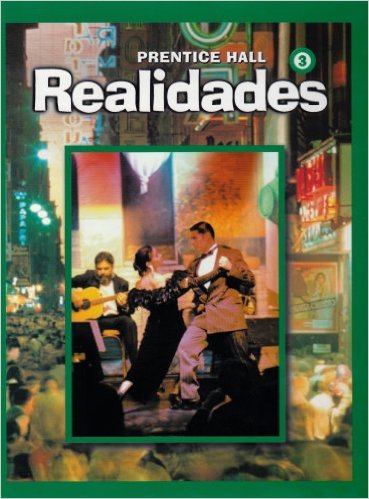
All Solutions
Page 198: Preparacion para el examen
Since we have “besan” (kiss) and “abrazan (hug) we will choose
a. cariñosos (affectionate).
For the second example, since we have “reconcilian” (reconcile), we will choose b. hacen las paces.
For the third, since we have “no sabe guardar secretos” (doesn’t know how to keep secrets), we will choose d. chismosa (gossip)
For the fourth, since we have “nunca mienten” (never lie), we will choose b. sinceros (honest).
In the fifth example, we will choose c. ¡Qué va! (No way!).
For the sixth example, since we have “aceptan tal como soy” (accept as I am), we will choose b. critican (criticize).
In the seventh, we have “nos gusta” (we like). Therefore we will choose d. mucho en común (a lot in common).
And lastly, for the eighth example, we will choose a. cualidades (qualities).
2.b
3.d
4.b
5.c
6.b
7.d
8.a
Since we have “que” and we know that the subjunctive is used after most “que” + …, we will choose c. sean
For the second example, since we have “ojalá que”, we will choose “a. perdone”. When expressing wishes and hopes the subjunctive is used.
For the third, we will use the infinitive of the verb. Therefore, we will choose “b. romper”.
For the fourth, we have “Fernando y Pedron (they) as a subjects. The reflexive pronoun for the third person plural is “se”. The letter with the verb in the third person plural is “b. se escribían”.
In the fifth example, we have “mis hermanos y yo” (we). The reflexive pronoun for the first person plural is “nos”. Therefore we will choose “a. nos”
For the sixth example, we have “después de” indicating what happened shortly after the fight. Therefore we will choose “b. hacemos” because the other verbs are in the past tense.
In the seventh, we have “nos” in the form of the question indicating a “nosotros” command”. As already learned, when adding reflexive pronoun tp the command we drop the “-s” of the command. Therefore, we will choose “b. reconciliemonos”.
And lastly, for the eighth example, the noun we want to replace with the possessive pronoun is “los padres”. We will choose “a. los tuyos” because the article and the possessive pronoun have to match the noun in the number and gender,
2.a
3.b
4.b
5.a
6.b
7.b
8.a

